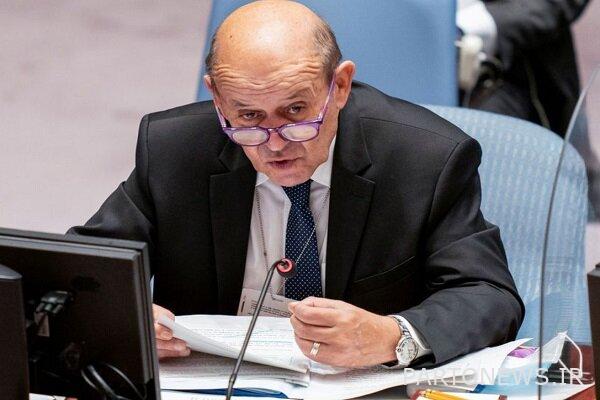Loudrian again set a deadline – Mehr News Agency | Iran and world’s news

According to the Mehr news agency, quoted by Reuters, French Foreign Minister Jean-Yves Le Drian, once again, on behalf of all Western partners, was responsible for putting a stick on the wheel of the Vienna talks, relying on an inefficient technique.
He claimed Wednesday that a decision that would save the 2015 nuclear deal is only a few days away, while it depends on Iran.
Loudrian claimed: “We have now reached the climax of the story. We are not talking about a few weeks, we are talking about a few days.
Claiming that the P5 + 1 agrees on the broad lines of the agreement, he claimed that now is the time for Iran to make its own political decisions, while according to Loudrian, this choice could lead to a serious crisis in the coming days. Or lead to an agreement that meets the interests of all parties.
He added: “We are approaching the moment of accepting the fact that if we want Iran to adhere to its non-proliferation obligations in exchange for the lifting of US sanctions, there must be something left of it (Borjam).”
The claim comes as Iran says it is in a hurry to reach an agreement in the Vienna talks but does not submit to false deadlines, and that it is up to the West to make a political choice.
Russia’s representative in the Vienna talks, Mikhail Ulyanov, says talks may be successful by the end of February, but talks still need time. Asked how long it would take, he said: “Not much time.”
Wang Kun, China’s representative to the Vienna-based International Atomic Energy Agency (IAEA), said at the same time that talks resumed last Tuesday that the two sides should listen more to Iran’s views on the final package and respect its legitimate rights and reasonable demands. Give.
He also called on all parties to appreciate the progress that has been made with difficulty and to focus on resolving outstanding issues, including the lifting of sanctions and the provision of economic guarantees, in order to reach a greater consensus in order to speed up the agreement. .
From the outset, China, despite the urgency of advancing the Vienna talks, opposed the imposition of artificial deadlines, saying that a statement alone was not enough and that lifting anti-Iranian sanctions should be a tangible process.

